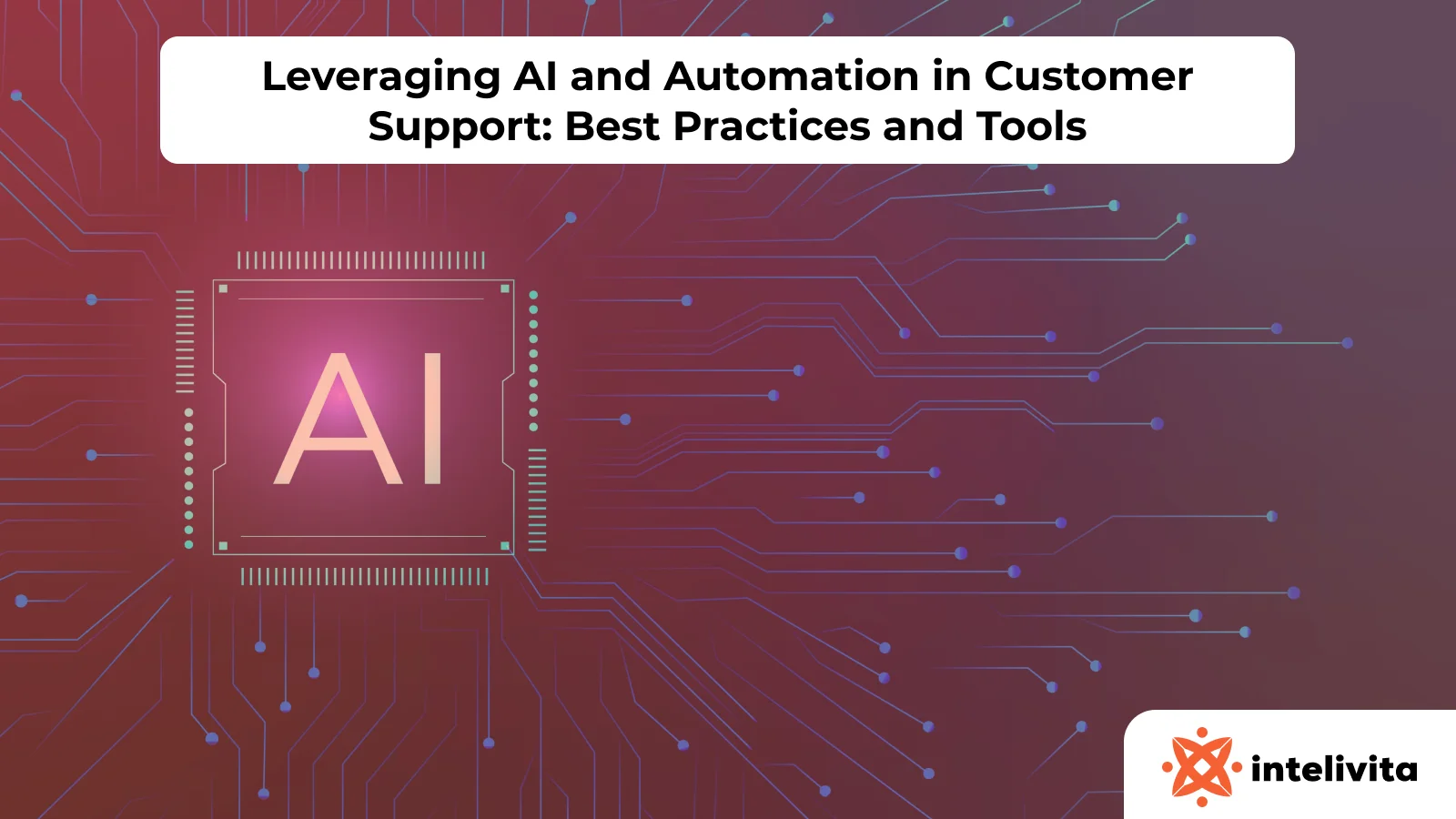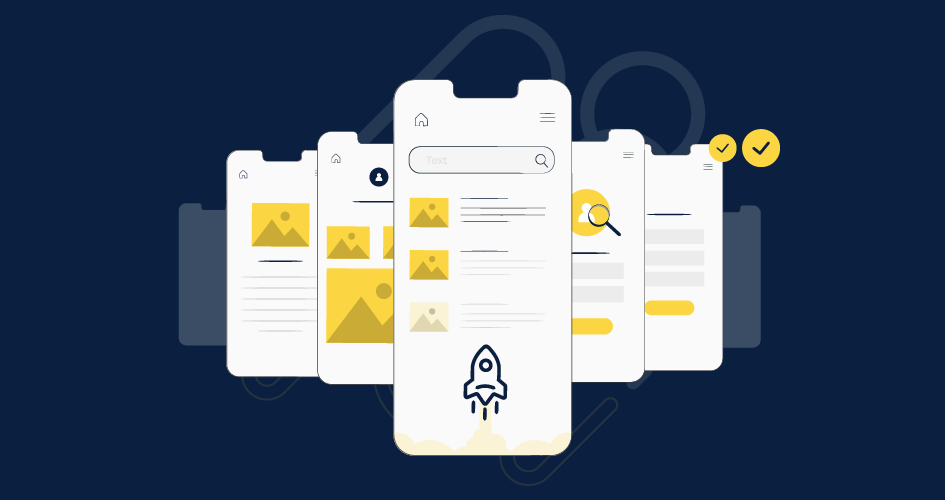How do you ensure your customers get the best support?
The answer is simple. You integrate Artificial Intelligence (AI) into your website or app’s customer support.
According to Capgemini, 63% of businesses have already invested in AI and automation tools to improve the quality of their customer support.
If you have not yet done so, you should, too.
It’s clear that when done right, AI can improve customer service experiences and offer consumers a more consistent, reliable, and effective form of online support.
This is true in many instances, including automatic follow-ups, data collection, live communication, and personalized responses.
Knowing how to utilize AI and automation to expand your services and cater to the evolving consumer’s needs is crucial in this changeable world.
Here, we’ll explore AI’s role in customer support and how to use it as a successful tool for enhanced engagement and success.
Understanding AI and automation in the world of customer support
Regardless of what industry you work in, AI and automation are bound to offer your business some form of advantage.
AI can streamline and simplify administrative operations, improve communication, and help your business grow.
However, when it comes to customer support, AI provides a multi-prong approach to creating satisfying experiences.
Being available around the clock to offer help, provide support, and share information makes it far easier to maintain a healthy reputation and assure your audience that you prioritize their needs.
Chatbots, automatic follow-ups, personalized communication, and offering responses tailored to individual consumer’s needs are some of the best ways to leverage AI in customer support.
AI-managed data analysis programs can also enhance the overall experience by collecting data based on market activity and adjusting services or goods to better suit individual needs.
But which tools and practices should your business embrace for the best results?
6 Tools And Best Practices For Utilizing AI And Automation In Customer Support
When integrating AI and automation into your customer support ecosystem, a few key practices and tools are critical to success.
The following six can help you cultivate a relationship with AI automation that feels simultaneously familiar and innovative to consumers:
Expand AI-powered self-service options
In a digitally-driven world, consumers can now easily navigate the average app or website without direct help—they just want access to an intuitive user interface that aligns with current trends and needs.
Expanding your AI-powered self-service options can make your services more accessible and innovative in today’s competitive digital landscape.
One popular example of AI-powered self-service is the chatbot.
Customers can engage with chatbots with questions, queries, and complaints anytime and without any delays.
They can also do so while using your platform to help them achieve their goals without calling a stranger or reading tedious helpdesk copy.
Prioritize personalized communication
Studies show that customers are more likely to return to a business if it offers a personalized experience; 71% expect it, and 76% feel frustrated when it’s not forthcoming.
It’s clear that people want individualized attention and to feel special, and AI can help you do that.
For example, you can use an email ticketing system that turns emails into personalized support tickets that are easy to track, assign, and organize.
This ensures customers don’t just feel like another number in a support queue.
Instead, they receive prompt, personal service that leads to a speedy resolution of their query.
Utilize machine learning (ML)
Machine learning is a type of technology that adapts and learns without being given exact instructions.
It relies on an ongoing data feed that allows it to identify how consumers are currently behaving and how to meet their needs in the most impactful way possible.
ML can also be applied to the tools and resources customers can access for support, such as on-site or in-app chatbots.
Ultimately, this technology maximizes the value of feedback through automated and ongoing data analysis.
Closely monitor customer feedback
Customers should always feel comfortable giving feedback on your current support system and services in general.
As a business, it is your responsibility to make it easy for them to do so and to take their opinions and perspectives seriously.
When integrating AI and automation into your service structure, make sure that the option to provide feedback is easily and quickly within reach.
Whether the response is positive or negative, it can give you powerful, organic insight into how people are receiving your AI support.
Maintain a flexible stance on AI integration
Integrating AI is an ongoing process.
The whole concept of AI is still in a state of evolution, and it will continue to be for some time.
Maintaining a flexible stance on which aspects of AI and automation you integrate into your platform is crucial for keeping it adaptable and allowing it to be refined as the technology unfolds.
Continue seeking ways to improve, acclimate, and shape your AI customer support offerings.
Rigidity is the enemy of evolution!
Leverage predictive analytics to improve and grow
Predictive analytics is another tool you can utilize to create more personalized experiences for your customers.
By continually analyzing data, your business can understand consumer behavior and predict what it will look like next.
This opens up the potential for targeted communication, more engaged customers, personalized responses and recommendations, and fostering more loyal relationships with your audience.
Additionally, predictive analytics will keep you on the cutting edge of AI automation methodologies and tools for enhancing customer support experiences online.
It will help you meet consumer’s needs more precisely while you pursue your business goals.
Conclusion
In the 2020s, the ability to harness the power of evolving AI and automation trends is one of the hallmarks of a successful business.
Leveraging AI to streamline your customer’s experiences with your app, website, service, or tool is an effective strategy for becoming a more competitive business and providing your audience with more well-rounded and impactful interactions with your product.
Use these tools and best practices to advance your relationship with AI and automation.
In doing so, you’ll create better, more consistently positive experiences for your target audience.











